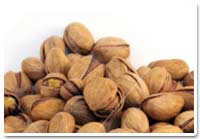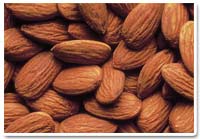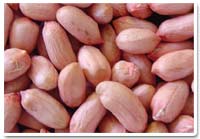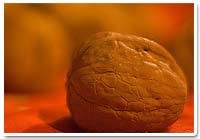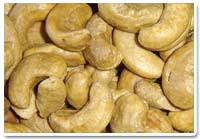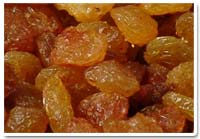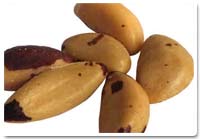Dates
What are Dates?

Dates are oval-cylindrical, 3–7 cm long, and 2–3 cm diameter. Dates when unripe are either bright red to bright yellow in color, depending on variety. It contain a single seed about 2–2.5 cm long and 6–8 mm thick.
Dates grow in clusters below the fronds on a date palm tree. A single cluster can hold 600 to 1,700 dates. Date palms can grow as tall as 100 feet and stay in production for over 60 years. The fronds of the date palm are featherlike and 10 to 20 feet long.
Fruit styles are usually graded into 3 groups.
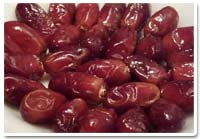
Semi-dry – firm flesh, low moisture, high sugar content – ‘Dayri’, ‘Deglet Noor’, ‘Zahidi’
Dry – dry flesh, very low moisture, high sugar content – ‘Thoory’.
History of Dates Consumption
The date palm is mentioned in the bible as the “tree of life,” and the word “date” comes from the Greek “daktulos,” which means “finger.” Dates grow in large bunches which can weigh as much as 40 pounds, and large trees will yield more than 1,000 dates each year.
Nutritional Value of Dates
Storage of Dates
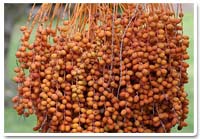
To slice dates neatly, chill them in the refrigerator or freezer for an hour. The colder they are, the easier it will be to slice them. If you’re adding dates to a cake or bread batter, coat them first with flour to keep them from dropping through the batter.
Baked Pork Chops And Date Stuffing
- 6 rib or loin pork chops
- Vegetable oil
- Salt
- Pepper
- 6 tbsp. melted butter
- 2/3 c. minced onion
- 1/2 c. celery
- 4 c. day-old bread crumbs
- 1 1/2 c. chopped dates or raisins
- 1 c. chopped, peeled tart apples
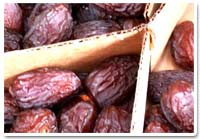
Brown chops well on both sides in hot oil in large skillet. Discard most of fat from skillet, keeping brown particles in bottom. Sprinkle on both sides with salt and pepper.
Heat 2 tablespoons of the butter in skillet; add onions and celery; saute until tender. Add next 3 ingredients; toss with remaining butter until well mixed. Arrange chops on top. Bake, covered, in preheated moderate oven at 350 degrees for 30 minutes. Uncover and bake 30 minutes longer. Makes 6 servings of 1 chop and 2/3 cup stuffing.






